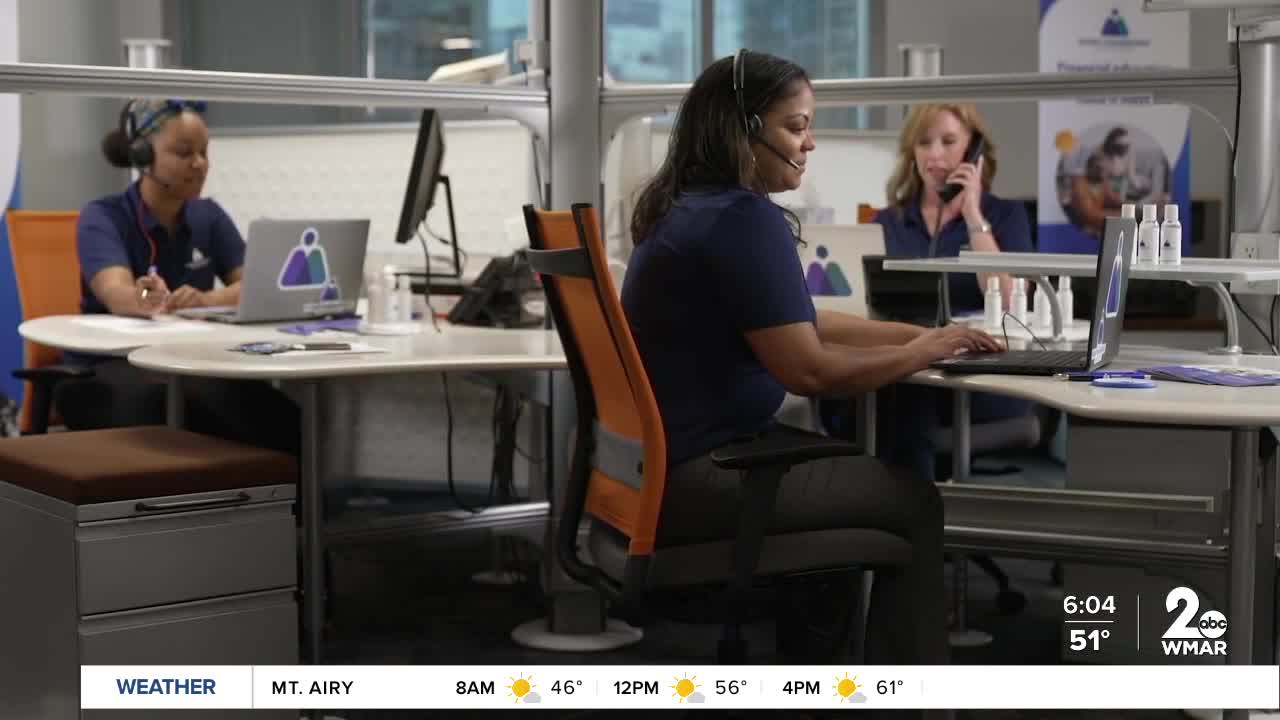BALTIMORE — New federal data shows debt collection calls have jumped more than 200 percent in the past year, flooding phone lines nationwide.
The sharp rise may be tied to more scam attempts, but for anyone actually dealing with real debt, there are strict federal rules collectors must follow. That includes when they can call, how they can contact you, and what they’re allowed to say.
Sophia Hoffer-Perkins has experience with those dreaded calls. Debt collectors started contacting her in 2019 after she fell behind on her credit card payments.
“My business went through this crash. And so, I was doing this like hustle. I didn’t want to miss a payment,” she said.
But eventually, she couldn’t keep up.
“That’s not the plan, and it felt awful not being able to pay it, like, shameful, embarrassing, frustrating. It felt like a secret that I needed to keep,” Hoffer-Perkins remembers.
And she said those calls made it worse. Thousands of others are receiving them too. Reports to the Federal Trade Commission have tripled in a year — from 44,085 in the second quarter of 2024 to 141,839 during the same period in 2025.
Sophia knew ignoring the calls wouldn’t make them go away, and she needed a new plan.
“I basically had $20,000 in debt and I had been paying down my debt for like eight years, and I basically still had $20,000 worth of debt," said Hoffer-Perkins. "Finally, I like really had this moment where I was like, I can’t just keep avoiding it, I have to do something.”
She enrolled in a debt management plan through Money Management International, a nonprofit credit counselor.
“We can work with the creditors to reduce interest rates, in some cases, even reduce the principal amount to help people get out of debt within a reasonable amount of time, reduce the amount of interest they pay over the period, and then, of course, long term improve their financial health and their credit score,” said Thomas Nitzsche, a financial educator with Money Management International.
For Sophia, her nearly 15 percent interest rate dropped to just 3, and for the first time in years, she could see progress.
“Now, in 2025, I’m down from five cards to two cards. I’ve paid off three of them and the total is now under $10,000, which is a completely different experience.”
Nitzsche said one in five of their clients has at least one account in collections, and once enrolled in a plan, the calls should stop. He also wants people to know debt collectors have limits.
“They can’t call you in the middle of the night. They can’t show up unannounced at your place of work or your home. They can’t threaten to tell people in your family or your co-workers about the debt,” Nitzsche said.
The Fair Debt Collection Practices Act also bans threatening or abusive language and restricts how often debt collectors can call — no more than seven times in seven days, or within seven days after talking with you by phone about a particular debt .
If you’re contacted about a debt you don’t recognize, verify before you pay. Contact the original creditor and review your credit report to confirm it’s legitimate. You can also request written verification of the debt — and never share personal information over the phone unless you’re certain the caller is real.
To report threatening or harassing calls to the Federal Trade Commission, click here, however, due to the current federal shutdown, the site is temporarily unavailable.
Complaints can also be reported to the Maryland Attorney General.




